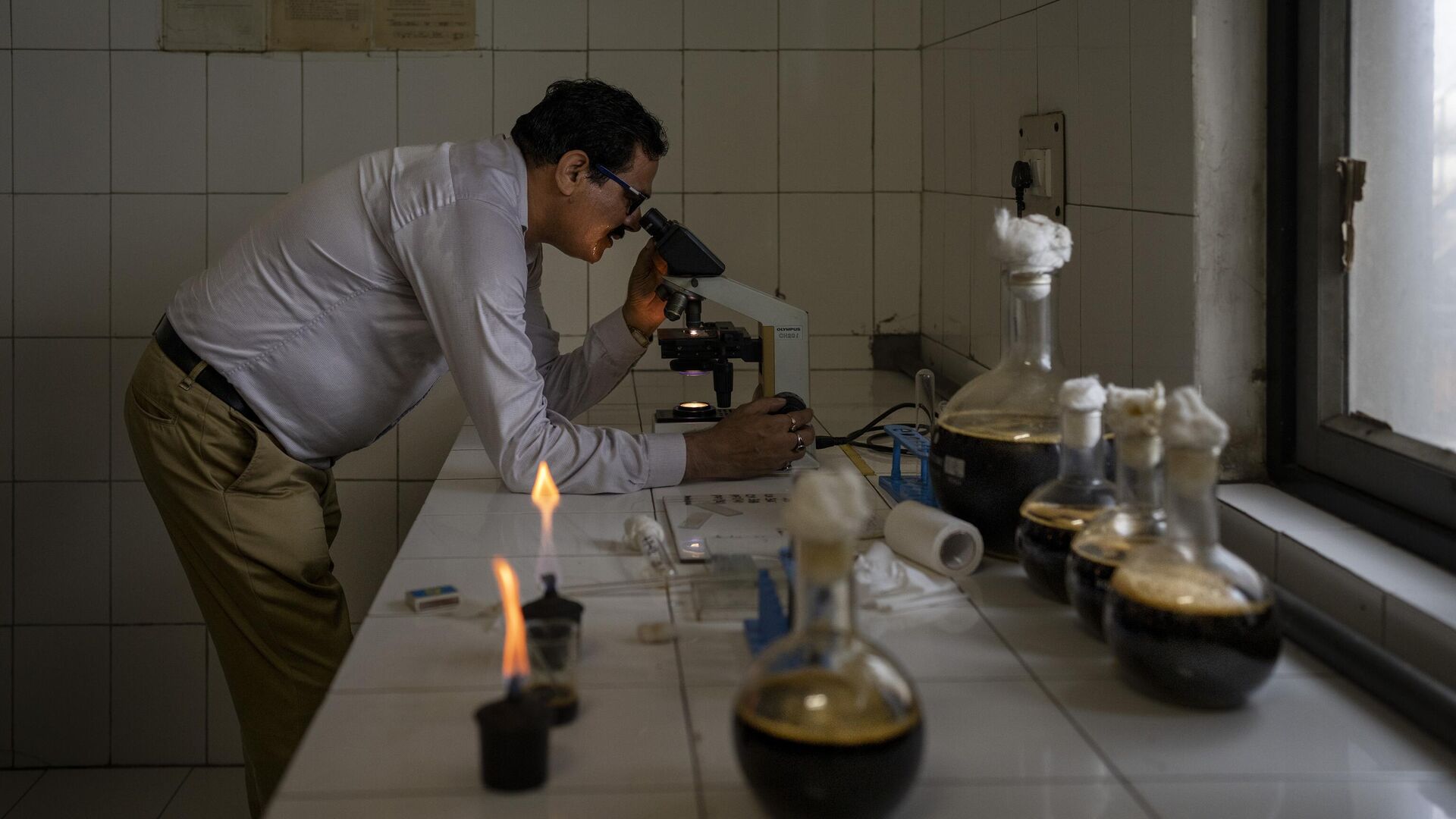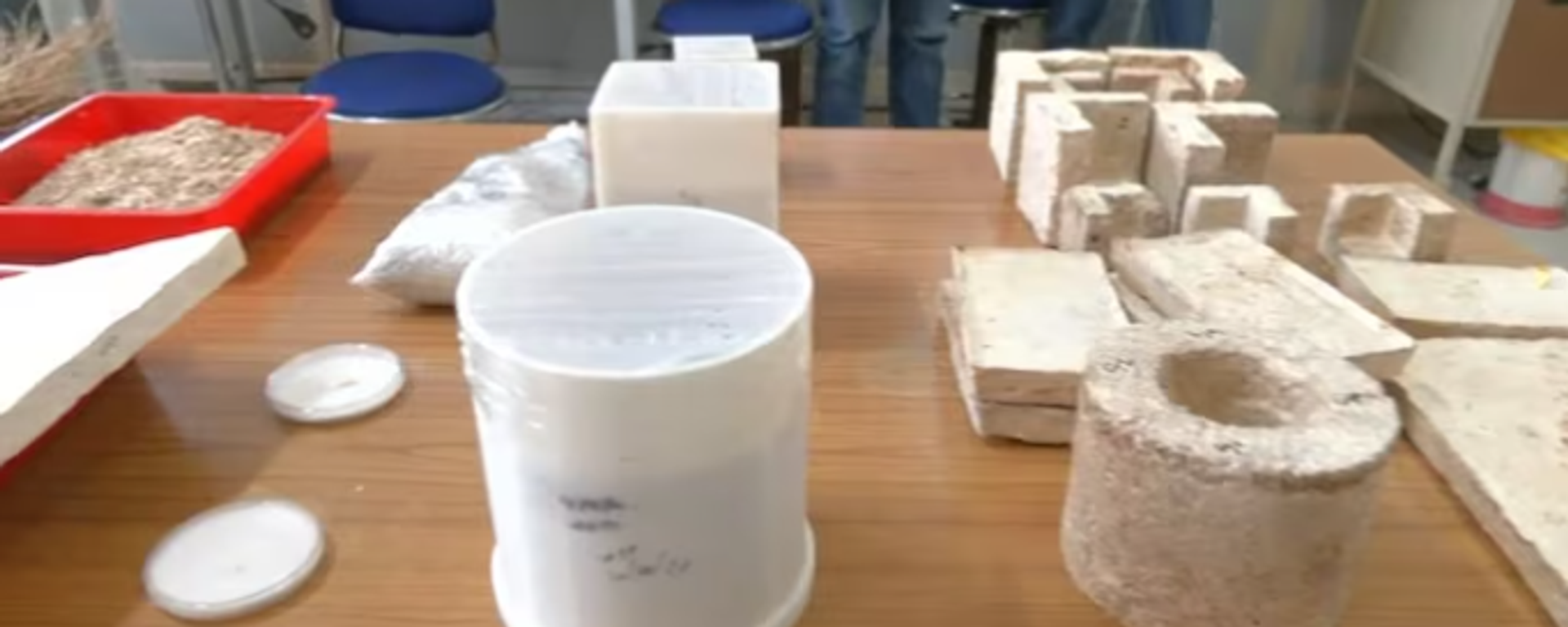https://sputniknews.in/20231103/breakthrough-indias-premier-institute-learns-to-convert-co2-to-co-5224616.html
Breakthrough: India's Premier Institute Learns to Convert CO2 to CO
Breakthrough: India's Premier Institute Learns to Convert CO2 to CO
Sputnik India
The Ministry of Earth and Science announced on Friday that IIT Bombay, India's premier institute, has successfully created an innovative technology capable of transforming carbon dioxide into carbon monoxide.
2023-11-03T18:59+0530
2023-11-03T18:59+0530
2023-11-03T18:59+0530
science & tech
india
climate change
science & tech
science diplomacy
ministry of earth sciences
economics
rising economies
economic crisis
business
https://cdn1.img.sputniknews.in/img/07e7/0b/03/5227560_0:160:3072:1888_1920x0_80_0_0_ec0bcef4a6336f9120fe0a7f88340e2d.jpg
The Ministry of Earth and Science announced on Friday that IIT Bombay, India's premier institute, has successfully created an innovative technology capable of transforming carbon dioxide into carbon monoxide.IIT Bombay is currently focused on finding scalable and cost-effective methods to capture CO2 from different emission sources. The goal is to convert this captured CO2 into useful chemicals or store it permanently. This is an important step towards mitigating greenhouse gas emissions.The institute also granted a patent for converting CO2 to carbon monoxide (CO) for this technology.The current process of converting CO2 to CO usually requires temperatures ranging from 400 to 750 °C. Additionally, an equal amount of hydrogen is needed to drive the reaction forward, resulting in a highly energy-intensive process.The new process developed by IIT Bombay is incredibly efficient, utilizing only a temperature range of 25-40 °C and water. What makes this electrocatalysis reaction truly remarkable is that it can harness the energy from solar panels or windmills, making the technology completely carbon-neutral.
https://sputniknews.in/20231102/indian-scientists-develop-bio-thermocol-using-crop-waste-5201772.html
india
Sputnik India
feedback.hindi@sputniknews.com
+74956456601
MIA „Rossiya Segodnya“
2023
Deexa Khanduri
https://cdn1.img.sputniknews.in/img/07e6/0c/13/138923_52:0:533:481_100x100_80_0_0_cadf23d341691fc65ff2b22fd1afe584.jpg
Deexa Khanduri
https://cdn1.img.sputniknews.in/img/07e6/0c/13/138923_52:0:533:481_100x100_80_0_0_cadf23d341691fc65ff2b22fd1afe584.jpg
News
en_IN
Sputnik India
feedback.hindi@sputniknews.com
+74956456601
MIA „Rossiya Segodnya“
Sputnik India
feedback.hindi@sputniknews.com
+74956456601
MIA „Rossiya Segodnya“
Deexa Khanduri
https://cdn1.img.sputniknews.in/img/07e6/0c/13/138923_52:0:533:481_100x100_80_0_0_cadf23d341691fc65ff2b22fd1afe584.jpg
electrocatalytic conditions, water, steel industry, iit bombay, carbon dioxide, carbon monoxide, greenhouse gas emissions, co, iron ores, metallic iron, hydrogen, carbon-neutral
electrocatalytic conditions, water, steel industry, iit bombay, carbon dioxide, carbon monoxide, greenhouse gas emissions, co, iron ores, metallic iron, hydrogen, carbon-neutral
Breakthrough: India's Premier Institute Learns to Convert CO2 to CO
Deexa Khanduri
Sputnik correspondent
The conversion process will take place under electrocatalytic conditions at room temperature, with the presence of water. This technology has been specifically developed for use in the steel industry.
The Ministry of Earth and Science announced on Friday that IIT Bombay, India's premier institute, has successfully created an innovative technology capable of transforming carbon dioxide into carbon monoxide.
IIT Bombay is currently focused on finding scalable and cost-effective methods to capture CO2 from
different emission sources. The goal is to convert this captured CO2 into useful chemicals or store it permanently. This is an important step towards mitigating greenhouse gas emissions.
Carbon Monoxide (CO) is used as a chemical by many industries as main ingredient for converting iron ores to metallic iron in blast furnaces.
The institute also granted a patent for converting CO2 to
carbon monoxide (CO) for this technology.
The current process of converting CO2 to CO usually requires temperatures ranging from 400 to 750 °C. Additionally, an equal amount of hydrogen is needed to drive the reaction forward, resulting in a highly energy-intensive process.
The new process developed by IIT Bombay is incredibly efficient, utilizing only a temperature range of 25-40 °C and water. What makes this
electrocatalysis reaction truly remarkable is that it can harness the energy from solar panels or windmills, making the technology completely carbon-neutral.



